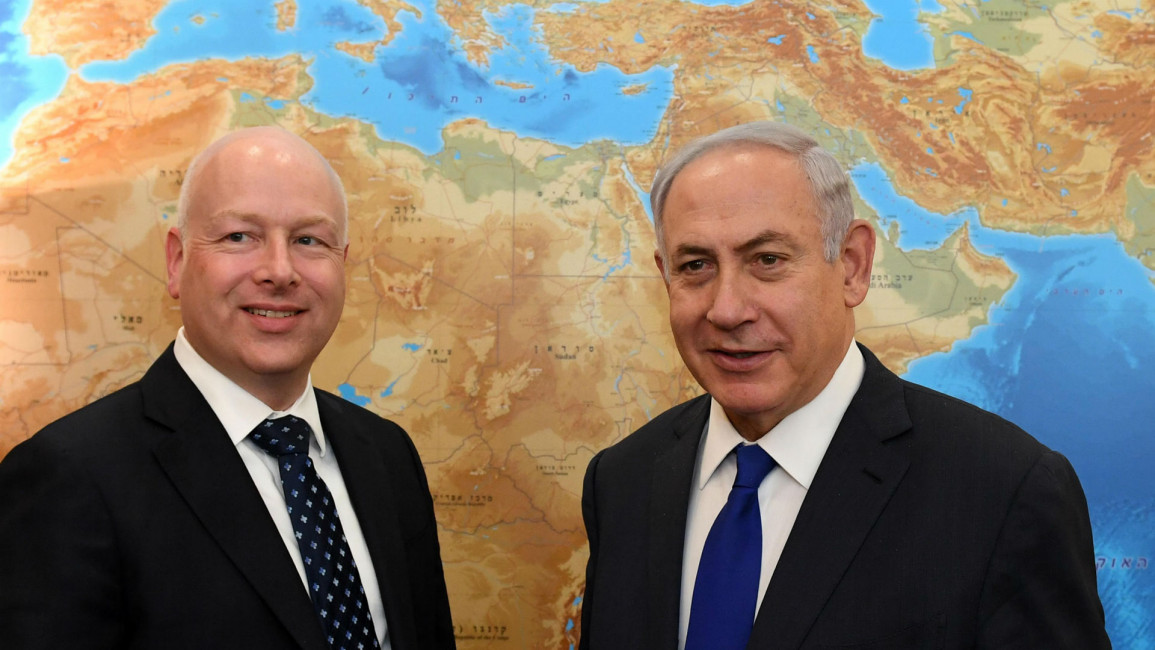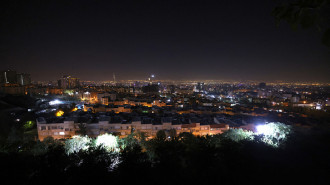Trump's Middle East envoy meets Netanyahu as tensions simmer over Jerusalem
The meeting took place as tensions with the international community and the Palestinians remained high in the wake of Trump's decision to recognise Jerusalem as Israel's capital.
Trump's 6 December decision broke with decades of foreign policy and international consensus, triggering global protests and drawing strong condemnation.
The Palestinians said the move disqualified the United States from its historic role as peace broker with the Israelis.
Greenblatt was accompanied by US ambassador to Israel David Friedman in what the peace negotiator called in a Tweet "a check-in as the Administration continues with its peace efforts which will benefit both Israelis and Palestinians".
Officials from Netanyahu's office offered no further information on the meeting.
On Tuesday, Greenblatt met with the European Union's special representative for the Middle East, Fernando Gentilini, as well as with Israeli Major General Yoav Mordechai, head of the COGAT defence ministry unit responsible for activities in the occupied Palestinian territories, the US envoy said on Twitter.
Greenblatt is a key member of a small team appointed by Trump who have been holding meetings in the region for months as part of the efforts to re-launch the moribund diplomatic process between Israel and the Palestinians.
In August, Trump dispatched a delegation of top US envoys to the Middle East to discuss peace talks, which have been frozen since talks collapsed in 2014.
Palestinian officials say they have received no clear vision from the US on the direction or substance of talks.
Greenblatt's visit to Israel was meant to precede that of US Vice President Mike Pence, who was due to arrive on Wednesday but postponed the trip to January, citing a need to attend a crucial Senate vote in Washington.
Palestinian president Mahmoud Abbas said Palestinian officials would not meet US political officials, and called on China and Russia to take a greater role in creating a peace process instead.
Abbas himself was meanwhile received in Saudi Arabia by King Salman on Wednesday, where the monarch pledged his country's support for East Jerusalem as the capital of a future Palestinian state.

![Palestinians mourned the victims of an Israeli strike on Deir al-Balah [Getty]](/sites/default/files/styles/image_684x385/public/2024-11/GettyImages-2182362043.jpg?h=199d8c1f&itok=xSHZFbmc)


![The law could be enforced against teachers without prior notice [Getty]](/sites/default/files/styles/image_684x385/public/2178740715.jpeg?h=a5f2f23a&itok=hnqrCS4x)
 Follow the Middle East's top stories in English at The New Arab on Google News
Follow the Middle East's top stories in English at The New Arab on Google News
![Thousands of people have fled from Lebanon to Syria as a result of Israel's war [Getty]](/sites/default/files/styles/image_330x185/public/2024-11/GettyImages-2180619380.jpg?h=199d8c1f&itok=q4PK1BtW)

![Anwar Ibrahim (centre) said that Malaysia would support the Palestinian people against Israel's genocide [Getty]](/sites/default/files/styles/image_330x185/public/2024-11/GettyImages-1742690206.jpg?h=69f2b9d0&itok=ZYgNyRPM)